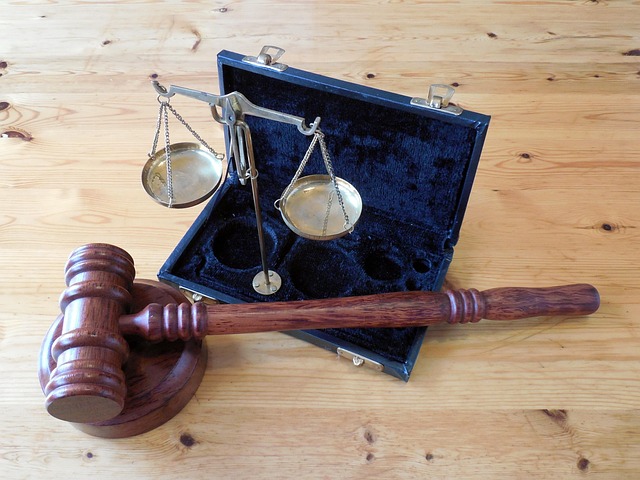Navigating healthcare compliance legal issues within the RF Securities industry is a complex, multi-faceted challenge driven by evolving regulations like HIPAA and FCPA. Key regulators, including the SEC and healthcare-specific agencies like the FDA, oversee transactions, enforce ethical conduct, and ensure safety standards, making strict adherence to laws crucial for market stability and career protection. Success hinges on professionals' ability to understand these dynamics, foster ethical conduct, mitigate risks, and win defense verdicts through proactive compliance programs, employee training, robust internal controls, and continuous monitoring of regulatory changes.
“The RF Securities industry, driven by rapid technological advancements, faces unique regulatory challenges. This article provides a comprehensive guide to understanding the intricate landscape of RF Securities regulation, with a specific focus on healthcare. We explore ‘Navigating Healthcare Compliance’ and its legal framework, highlighting the roles of key regulatory bodies in ensuring data privacy and security. Furthermore, we delve into ‘Legal Issues’ that demand attention and offer best practices for industry players to stay compliant in this dynamic sector.”
- Understanding RF Securities Industry Regulation: A Overview
- Navigating Healthcare Compliance: Unique Challenges and Legal Framework
- Key Regulatory Bodies and Their Roles in RF Securities
- Legal Issues in Healthcare Data Privacy and Security
- Best Practices for Ensuring Compliance in the RF Securities Industry
Understanding RF Securities Industry Regulation: A Overview

Navigating Healthcare Compliance Legal Issues is a complex task within the RF Securities Industry Regulation landscape. As regulations evolve to address ethical and financial concerns in healthcare-related investments, entities must ensure adherence to stringent standards. This involves meticulous compliance with laws such as HIPAA, FCPA, and industry-specific guidelines, all while managing potential legal risks that could arise from internal investigations or regulatory audits.
The RF Securities Industry, given its intricate web of interactions between regulators, investors, and healthcare providers, is particularly susceptible to scrutiny. All stages of the investigative and enforcement process—from initial inquiries to jury trials—can significantly impact market stability and individual careers. Understanding these dynamics is essential for practitioners and institutions aiming to foster a culture of ethical conduct, mitigate risks effectively, and ultimately, win challenging defense verdicts while navigating healthcare compliance legal issues successfully.
Navigating Healthcare Compliance: Unique Challenges and Legal Framework

Navigating Healthcare Compliance presents a unique set of challenges for the RF Securities industry due to the intricate legal framework surrounding healthcare regulations. This sector is highly scrutinized, as it directly impacts public health and safety. The regulatory landscape involves federal and state-level laws, with agencies like the Food and Drug Administration (FDA) and the Centers for Medicare & Medicaid Services (CMS) playing pivotal roles in ensuring compliance.
Compliance issues can arise at various stages of the investigative and enforcement process, requiring RF Securities professionals to stay abreast of changing regulations across the country. Achieving extraordinary results necessitates a deep understanding of these laws, from data privacy protections under HIPAA to anti-kickback statutes. Staying ahead of legal developments is crucial for maintaining integrity and mitigating risks in this dynamic sector.
Key Regulatory Bodies and Their Roles in RF Securities

In the realm of RF (Radio Frequency) securities, navigating healthcare compliance legal issues is a complex yet essential task. Key regulatory bodies play a pivotal role in overseeing and enforcing rules that protect investors, ensure market integrity, and promote ethical conduct. Organizations like the Securities and Exchange Commission (SEC) in the United States, along with international counterparts, are responsible for regulating RF securities transactions, including initial public offerings (IPOs), mergers and acquisitions, and disclosure requirements. These bodies scrutinize financial statements, assess potential white collar and economic crimes, and monitor all stages of the investigative and enforcement process to maintain fairness and transparency.
Regulatory oversight extends into healthcare-specific domains, where agencies such as the Food and Drug Administration (FDA) in the US ensure that RF technologies used in medical devices adhere to stringent safety and efficacy standards. Effective navigation of these regulatory bodies is crucial for businesses operating in this sector, requiring a deep understanding of not only legal frameworks but also the evolving landscape of healthcare compliance. This ensures that respective business operations remain compliant, innovative, and responsible.
Legal Issues in Healthcare Data Privacy and Security

Navigating Healthcare Compliance Legal Issues present a complex landscape for the RF Securities industry. With sensitive patient data at stake, ensuring privacy and security is paramount. The Health Insurance Portability and Accountability Act (HIPAA) sets the framework for protecting this information, but its enforcement comes with legal intricacies that can prove challenging. Companies must stay vigilant to avoid indictment by adhering strictly to data protection protocols and maintaining robust security measures.
A winning challenging defense verdict in healthcare compliance cases hinges on demonstrating due diligence in implementing and upholding these regulations. Achieving extraordinary results involves staying informed about evolving legal standards, proactively addressing potential violations, and fostering a culture of compliance within the organization. This proactive approach not only mitigates legal risks but also strengthens trust between healthcare providers and their patients.
Best Practices for Ensuring Compliance in the RF Securities Industry

Navigating Healthcare Compliance Legal Issues is a complex task for any industry, but especially so in the RF Securities sector. To ensure adherence to regulations, companies must adopt robust best practices. These include implementing comprehensive compliance programs that are tailored to their specific operations and risks. Regular training sessions for employees at all levels on legal and ethical standards are crucial; these should cover topics such as insider trading, anti-money laundering (AML), and know your customer (KYC) procedures.
A strong internal control system is another essential practice. This involves rigorous monitoring, auditing, and documentation to identify and mitigate potential risks. Additionally, staying informed about regulatory changes and industry trends is vital; this proactive approach allows for swift adjustments and ensures the company remains compliant with the latest legal landscape, including addressing white-collar defense strategies and navigating issues within the philanthropic and political communities to avoid economic crimes.
The regulation of the RF securities industry, particularly within healthcare, presents a complex landscape. As we’ve explored, understanding the intricate web of legal frameworks and regulatory bodies is paramount for success. Navigating healthcare compliance involves addressing unique challenges related to data privacy and security, which are crucial aspects in an era of stringent regulations. By adhering to best practices and staying informed about evolving legal issues, industry players can ensure they remain compliant and protect sensitive information. This holistic approach not only fosters trust but also positions the RF securities sector as a responsible guardian of financial and healthcare data.






